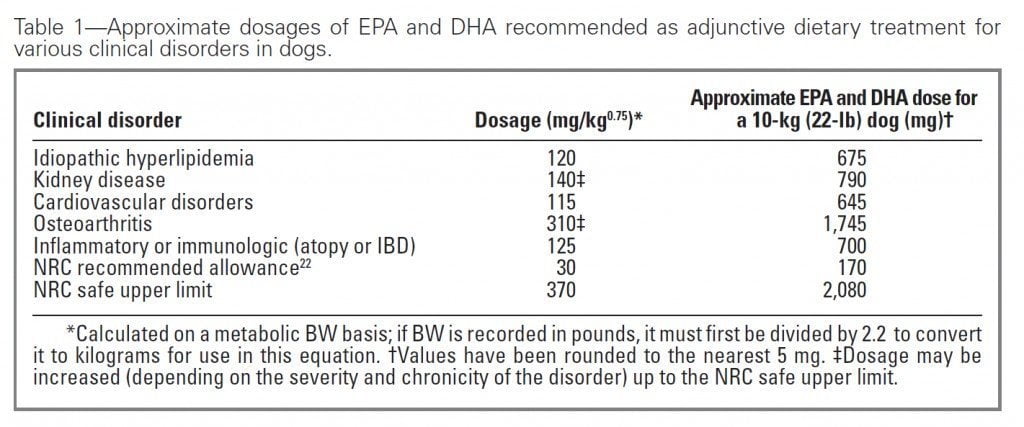John E. Bauer 2011
SUMMARY
The use of dietary omega-3 fatty acids as adjunctive treatments for several clinical disorders has been evaluated to a greater extent in dogs than in cats. In dogs, evidence has accumulated regarding beneficial responses with dietary inclusion of omega-3 fatty acids or their provision for inflammatory conditions such as atopy and some renal disorders as well as cardiovascular problems, hyperlipidemias, and osteoarthritis. Emerging areas of investigation include their role in IBD, cancer, cognitive function, and behavior. Less is known about safe amounts for treating disorders in cats, although prudent recommendations for dogs and cats have been included in the present report. In addition, a sample calculation has been described for use in determining the amount of additional LC omega-3 fatty acids to feed when the diet being fed already contains a known or estimated amount of these nutrients. As further studies are conducted and published, refinements in the recommendations for the use of LC omega-3 fatty acids will likely be added to the diverse clinical veterinary applications for these metabolically functional dietary fats.
Download full study below



Responses